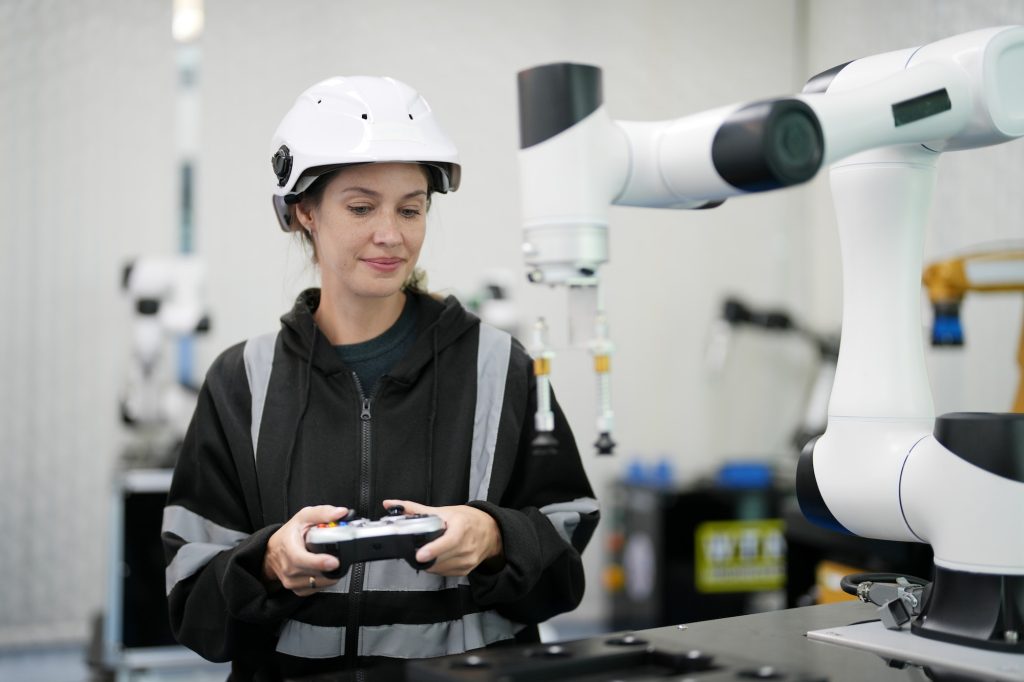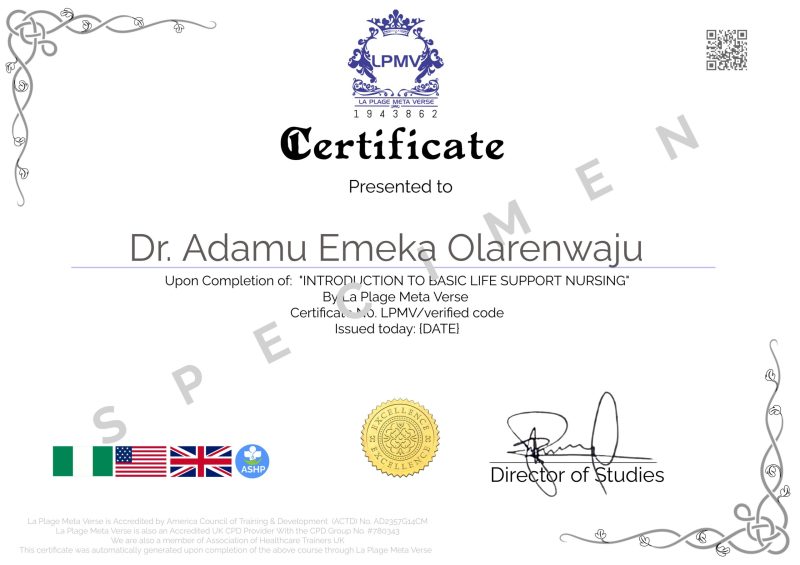
Artificial Intelligence (AI) in engineering refers to the application of advanced computer algorithms and intelligent systems to enhance and streamline various aspects of the engineering field. AI technologies empower engineers to solve complex problems, optimize processes, and design innovative solutions more efficiently than ever before.
Using machine learning, AI algorithms can analyze vast amounts of data, identify patterns, and make predictions to aid in decision-making during the design and development phases of engineering projects. This not only accelerates the development process but also enables engineers to create more robust and optimized designs, reducing costs and improving overall performance.
In engineering simulations, AI can optimize parameters, automate simulations, and assist in real-time analysis, providing real-time feedback and insights. AI-powered systems can autonomously detect anomalies, predict equipment failures, and optimize maintenance schedules, leading to increased reliability and reduced downtime for critical infrastructure.
Moreover, AI facilitates automation in manufacturing processes, where robots and autonomous systems can perform intricate tasks with precision and speed. This combination of AI and robotics leads to increased productivity, higher quality outputs, and safer working environments.
Overall, the integration of AI in engineering represents a paradigm shift, empowering engineers with powerful tools that drive innovation, efficiency, and sustainability across various industries, ultimately shaping the future of engineering.
What you will learn
In studying Artificial Intelligence (AI) in engineering, you will delve into a range of topics and concepts aimed at leveraging advanced computer algorithms and intelligent systems to optimize and revolutionize engineering practices. Some key areas you are likely to learn about include:
- Machine Learning and Data Analysis: Understanding the fundamentals of machine learning algorithms, data preprocessing, and how to extract valuable insights from vast datasets. This knowledge forms the foundation for AI-driven decision-making in engineering.
- AI Applications in Engineering: Exploring the diverse applications of AI in engineering, such as design optimization, predictive maintenance, anomaly detection, and process automation. You’ll learn how AI technologies can be integrated into various engineering disciplines.
- Engineering Simulations and AI: Studying how AI can enhance engineering simulations by automating tasks, optimizing parameters, and providing real-time analysis, leading to more accurate and efficient simulations.
- Optimization Techniques: Discovering different optimization methods and algorithms that enable engineers to find the best solutions for complex engineering problems, considering multiple constraints and variables.
- Robotics and Autonomous Systems: Exploring the intersection of AI and robotics, understanding how autonomous systems can be used in manufacturing, logistics, and critical infrastructure, and the benefits they offer in terms of productivity and safety.
- Ethics and Bias in AI Engineering: Examining the ethical considerations and potential biases that arise when implementing AI solutions in engineering projects, and how to address these issues responsibly.
- Industry Case Studies: Analyzing real-world examples and case studies where AI has been successfully applied in engineering to solve challenges, improve processes, and drive innovation.
- AI Integration Strategies: Learning about the practical aspects of integrating AI technologies into existing engineering workflows, and the potential challenges and benefits associated with adoption.
- AI and Sustainability: Exploring how AI can contribute to sustainable engineering practices, such as energy-efficient designs, waste reduction, and environmental impact assessment.
Overall, the study of AI in engineering equips you with the knowledge and skills to leverage cutting-edge technologies, drive efficiency, and create innovative solutions that will shape the future of engineering across various industries.
Who should learn
Artificial Intelligence in engineering offers tremendous potential for various professionals and students in the engineering field. The following individuals and groups can benefit from learning AI in engineering:
- Engineers and Engineering Professionals: Practicing engineers, regardless of their specialization (e.g., civil, mechanical, electrical, aerospace), can enhance their skill set by incorporating AI knowledge into their domain expertise. AI empowers engineers to tackle complex problems, optimize designs, and make data-driven decisions, leading to more efficient and innovative engineering solutions.
- Students and Researchers: Aspiring engineers and researchers interested in cutting-edge technologies should consider learning AI in engineering. It can provide them with a competitive advantage in their academic pursuits and future careers, allowing them to contribute to the ongoing advancements in the field.
- Data Scientists and AI Specialists: Professionals with a background in data science or AI can find exciting opportunities in engineering-related industries. Understanding the engineering domain can help them apply their AI expertise more effectively to address engineering challenges.
- Manufacturing and Industrial Professionals: AI is transforming manufacturing and industrial processes. Professionals working in these sectors can benefit from AI knowledge to optimize production, improve quality control, and enhance overall efficiency.
- Infrastructure and Construction Professionals: In the fields of infrastructure planning and construction, AI can be valuable for optimizing designs, analyzing structural integrity, and predicting maintenance needs.
- Robotics and Automation Specialists: Those involved in robotics and automation can benefit from AI techniques to create smarter, more autonomous systems that can revolutionize manufacturing and various other applications.
- Professionals in Predictive Maintenance: Individuals working in predictive maintenance roles can learn AI to enhance their abilities to monitor and predict equipment failures, reducing downtime and increasing reliability.
- Entrepreneurs and Innovators: AI opens up opportunities for entrepreneurial ventures in the engineering sector. Learning AI can help innovators create groundbreaking products and services that leverage the power of artificial intelligence.
- Sustainability and Green Technology Professionals: AI can play a significant role in advancing sustainable engineering practices. Professionals in this field can learn AI to develop eco-friendly designs and processes.
- Engineering Managers and Decision-Makers: Managers and leaders in engineering organizations should also have a foundational understanding of AI to make informed decisions about incorporating AI technologies into their workflows and projects.
In summary, anyone involved in engineering, from students and practitioners to researchers and decision-makers, can benefit from learning Artificial Intelligence in engineering. Embracing AI can unlock new possibilities, improve efficiency, and drive innovation across various engineering disciplines and industries.
Career Opportunities:
The integration of Artificial Intelligence (AI) in engineering has opened up a wide range of exciting and promising career opportunities. As AI continues to shape the future of engineering, here are some of the key career paths and roles available in this rapidly evolving field:
- AI Engineer/Developer: As an AI engineer or developer, you’ll specialize in designing, developing, and implementing AI algorithms and models specific to engineering applications. This role involves working with data, machine learning, and deep learning techniques to create AI-driven solutions for engineering challenges.
- Data Scientist/Analyst: Data scientists and analysts in engineering use AI and machine learning algorithms to analyze complex datasets, identify patterns, and extract valuable insights. They help engineers make data-driven decisions during the design, development, and optimization processes.
- Robotics Engineer: Robotics engineers focus on integrating AI technologies with robotic systems to create autonomous machines capable of performing tasks in manufacturing, logistics, and other engineering applications.
- Process Automation Specialist: Process automation specialists leverage AI to automate various engineering processes, increasing efficiency and reducing manual intervention in tasks such as manufacturing, quality control, and supply chain management.
- Predictive Maintenance Engineer: Predictive maintenance engineers utilize AI and machine learning to predict equipment failures and maintenance needs in industrial and infrastructure settings. They ensure the reliability and uptime of critical systems.
- Computer Vision Engineer: Computer vision engineers develop AI algorithms to interpret and analyze visual data in engineering contexts. This includes applications like object detection, quality inspection, and augmented reality systems.
- Optimization Engineer: Optimization engineers focus on using AI and optimization techniques to find the best solutions to complex engineering problems, considering multiple constraints and objectives.
- Sustainability Engineer: Sustainability engineers apply AI to create environmentally friendly and energy-efficient designs, analyzing data to minimize the ecological impact of engineering projects.
- CAD (Computer-Aided Design) Specialist: CAD specialists with AI knowledge can develop intelligent design tools and automation features, streamlining the design process and improving productivity.
- Engineering Manager/Director for AI Initiatives: In management roles, professionals oversee AI integration projects within engineering organizations, ensuring successful implementation and alignment with business objectives.
- Research Scientist in AI Engineering: Research scientists contribute to the advancement of AI technologies in engineering by exploring new algorithms, conducting experiments, and publishing findings.
- AI Consultant for Engineering Firms: AI consultants work with engineering firms to identify AI opportunities, develop AI strategies, and guide the implementation of AI solutions tailored to their specific needs.
- Entrepreneur in AI Engineering Solutions: Entrepreneurs can establish startups focused on providing AI-powered engineering products or services, catering to the growing demand for innovative solutions.
These are just a few examples of the diverse career opportunities in AI engineering. With AI becoming increasingly integral to the engineering industry, professionals in this field can look forward to a future filled with challenging and rewarding roles that contribute to shaping the world of tomorrow.
Course Format & Delivery
The course materials are available online and allow students to access them anytime. They can also log into the course portal to refresh their memory on the course and also make references. Synchronous online tutorial classes are also available at given periods to provide interactive learning for those who learn better from a class-like environment.
Prerequisites
This course does not require participants to have a specific entry requirement. Those who are comfortable with ARTIFICIAL INTELLIGENCE IN ENGINEERING can sign up.
Course Duration & Online Support
Duration depends on the learner’s ability to cope with the pace and scope of the course. Self-study allows participants to complete the course at their own pace. Support extensions are also available if students fail to do so within that period.
Assessment
To successfully complete the course, students must complete various tests and assessments. You may be required to get a link from our Training Provider. Your test will be reviewed and graded by our system. You may attempt only twice.
Get a Completion Certificate.
La Plage Meta Verse is an Accredited CPD Provider. Upon successful completion of the course, students will be able to gain a CPD Accredited Certificate. Share your certificate with prospective employers and your professional network on all social media platforms.


Nice been here